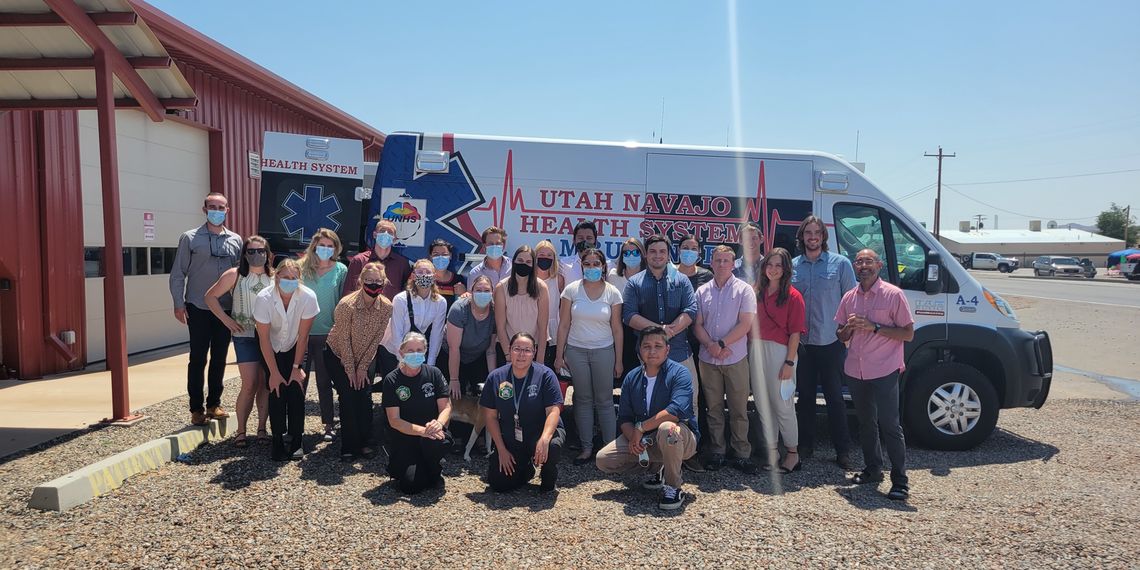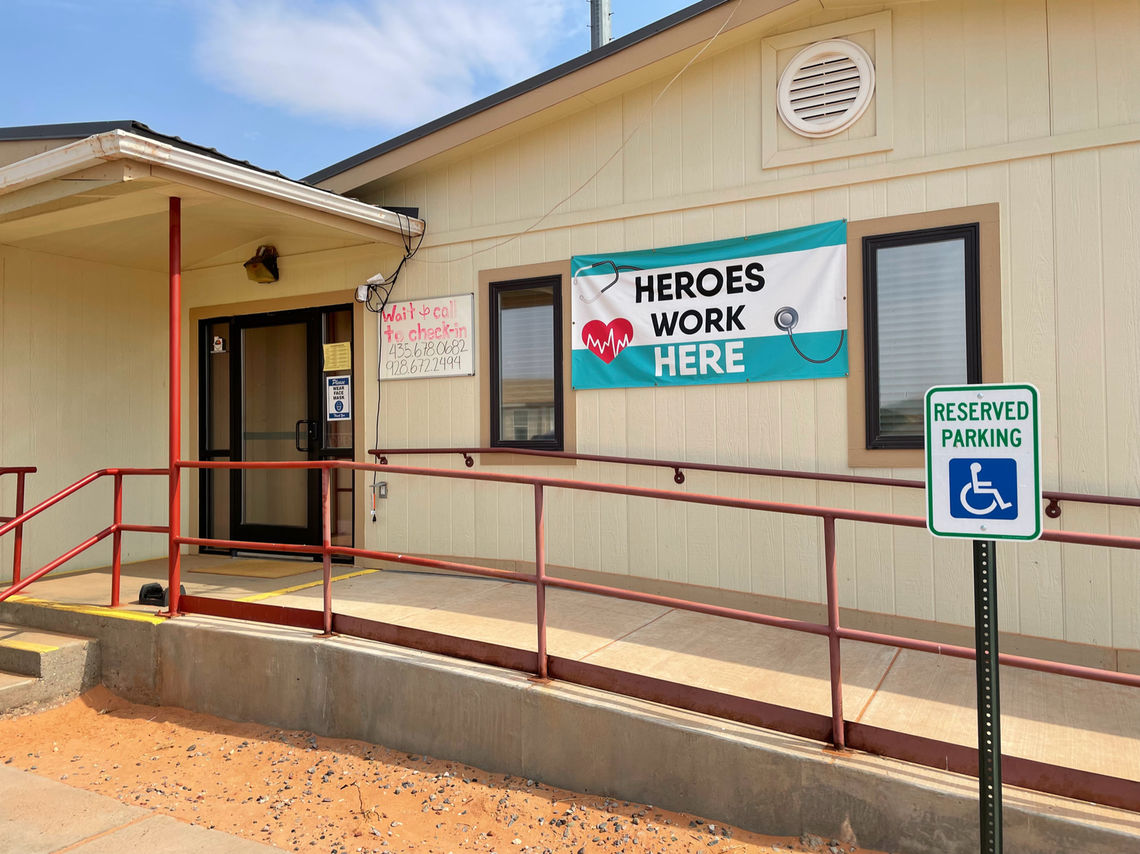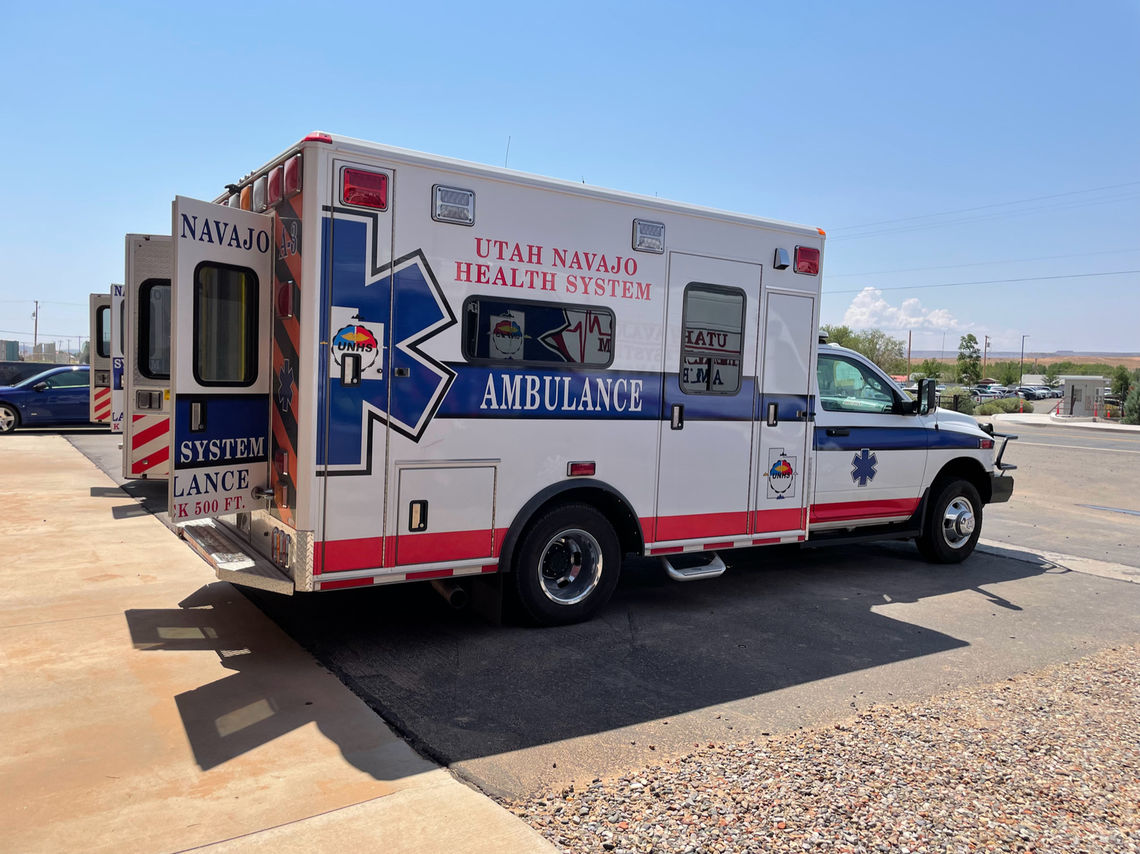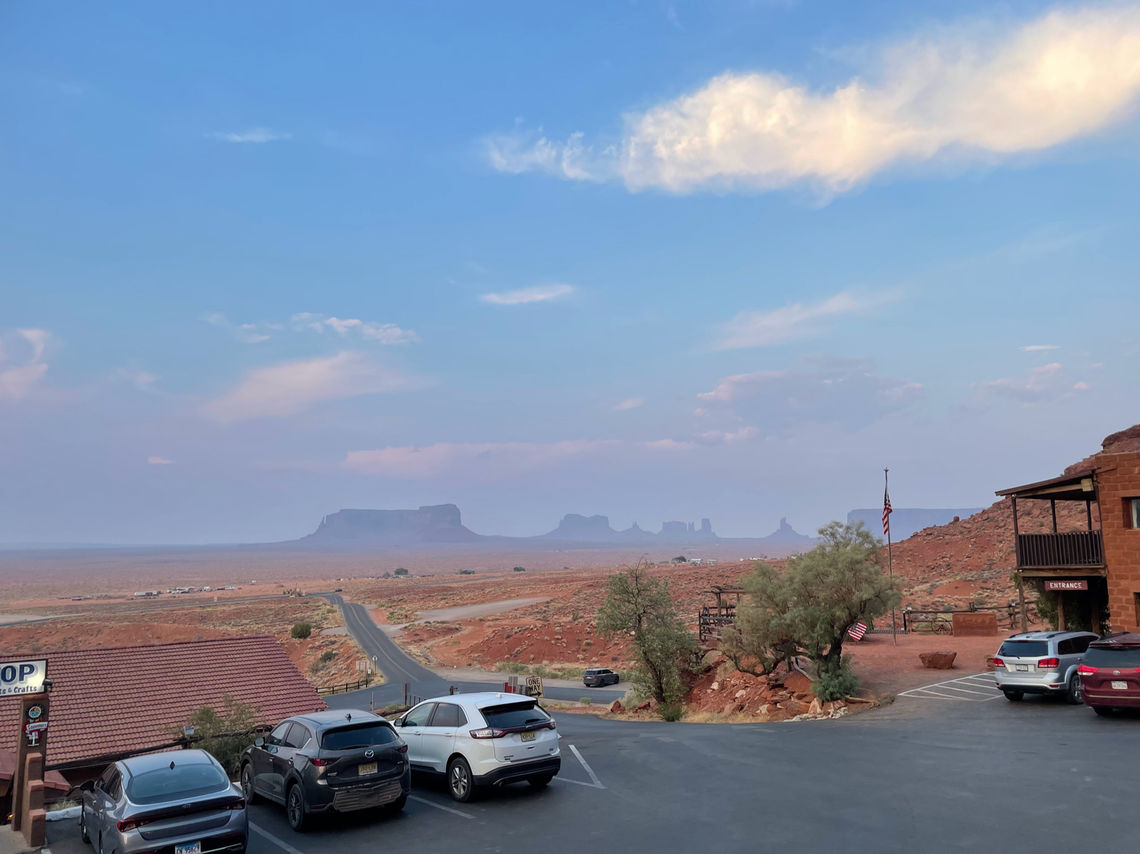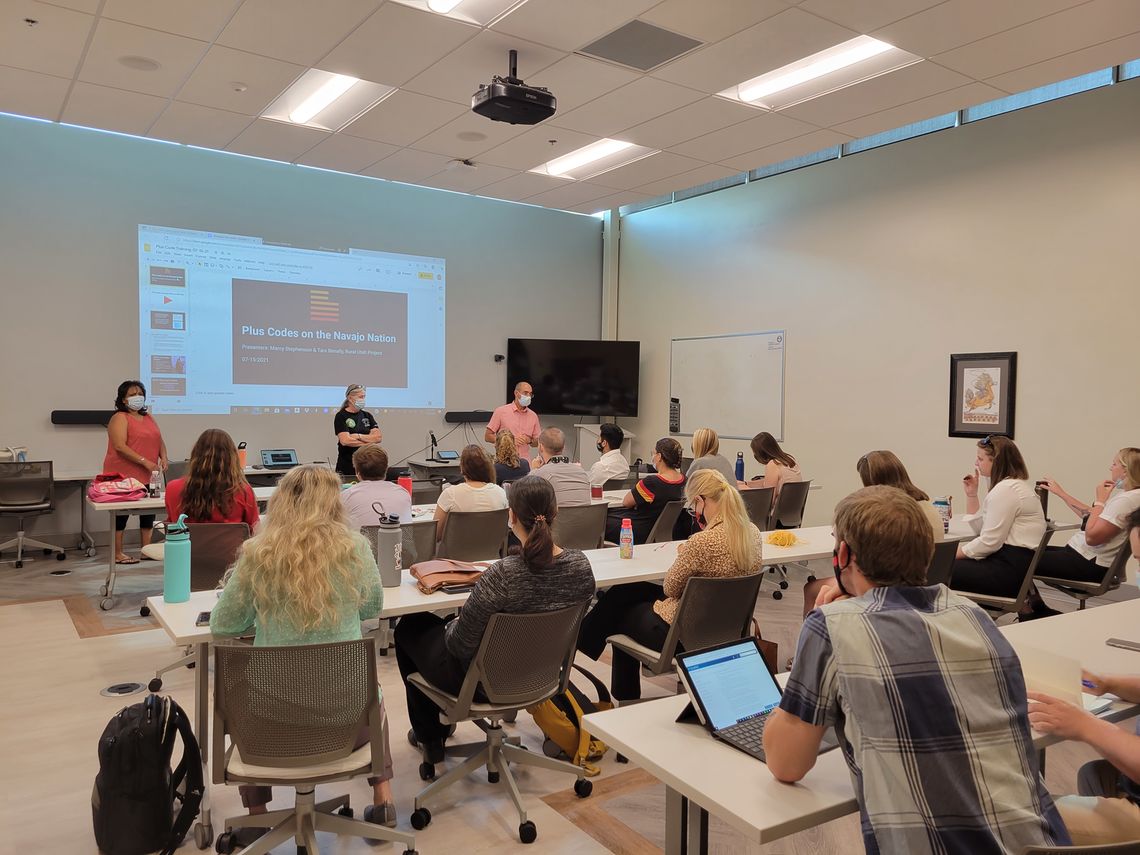TRUE Program
Learn more about Tribal, Rural, and Underserved Medical Education here.
a fact; health care isn’t always equally accessible. Disparities often exist between physicians and our communities. We’ve seen these challenges as an educational opportunity and developed the Tribal, Rural, and Underserved Medical Education (TRUE) Graduate Certificate. The TRUE program places students in medically underserved communties, like the Navajo Nation.
More than medical education
There are many people, rural and urban, who are underserved and in need of better access to health care and physicians. This is the genesis of TRUE: to provide experiences for medical students early in training. Our mission is to prepare and encourage University of Utah medical students to choose residencies and careers in primary care that serves tribal communities, rural communities, and medically underserved communities (MUCs) after they graduate.
TRUE is a specialized program through our Graduate Certificate in Tribal, Rural and Underserved Medicine that provides opportunities for our medical trainees to learn about health care through community immersion. This first-hand learning reinforces classroom teachings in a meaningful, lasting way. By taking our medical students out of the classroom and providing real-world experiences, they develop a better, deeper understanding of the difficulties faced by tribal and underserved communities. Through this program, they experience how poverty, cultural differences, and lack of medical services affect the lives of people in these communities.
Like the communities they serve, our students are of diverse ethnicities, cultures, and economic backgrounds. Their unique experiences, coupled with spending time on the reservation in remote, underserved areas, affects how they will practice health care.
We’ve found our “big city” students, who thought they understood rural settings, have a new appreciation for day-to-day conveniences. It is not uncommon to see pick-up trucks loaded with barrels of drinking water driving long distances on remote dirt roads. They see how isolation and physical distance affect people living here and gain greater awareness for daily barriers patients face. Something as routine as going to the clinic, the dentist, or the grocery store is anything but routine in these remote, rural areas.
Building community through communication
TRUE has a way of building camaraderie. Students experience how the community medical staff work together. Traditional Western physicians and medical practices, alongside the tribal medicine man, create a level of health and wellness to support health of both the body and the spirit.
One physician entered each room saying “yáʼátʼééh,” the Navajo word for “hello.” He never pronounced it correctly, but the patients would smile and giggle, appreciating his effort. This small but meaningful effort helped bridge a communication and cultural gap.
TRUE gives trainees first-hand practice of listening and hearing patient needs. They learn to recognize cultural differences and adjust treatment approaches and care plans. Awareness of culture, community, resources, and what everyday life looks like, means adapting treatment plans to fit those needs. Through TRUE, they learn to listen and adapt to patients, a vital part of care in any setting.
TRUE reaches far beyond the few days spent with the Navajo people in their own community. The experience of care for people in rural, underserved areas lasts a lifetime. Whether practicing in cities or villages, the immersive experience from TRUE will stay with our students. TRUE reminds us that no matter what medical skills we possess, they are relevant only when accessed by patients.
Originally posted October 2021
David Sandweiss
Ty Dickerson
Cameron Arkin
Michaela Kowalewski
Tsivya Devereaux
Sean Batenhorst
Olivia Spencer
Access to medical care isn't a given. Medical students from the Tribal, Rural, and Underserved Medical Education (TRUE) Graduate Certificate program tell us first-hand experiences that helped them build a passion for complex problem solving by experiencing big, systemic challenges up close.
Accelerate Learning Community has now grown to exceed more than half a million learners from across the world! Each month, we average around 30,000 visitors who learn about health care equity, improvement, leadership and resilience from U of U Health faculty, staff, students, and trainees. Continuing our annual tradition of giving thanks, we’re celebrating the eight most popular national articles and local favorites in 2022.
Physician leader and community organizer Richard Ferguson shares his work to form Utah’s first organization for Black physicians, with the aim to build a community among current Black physicians, residents, and students working or living in Utah.
